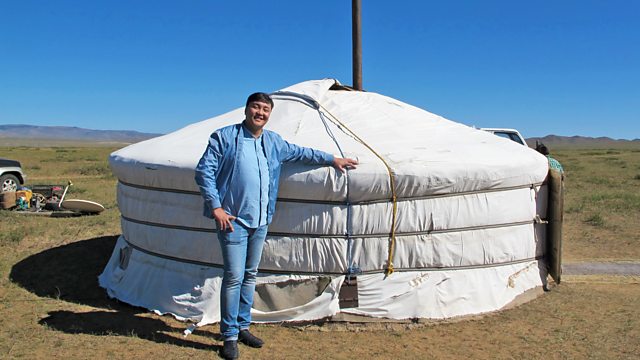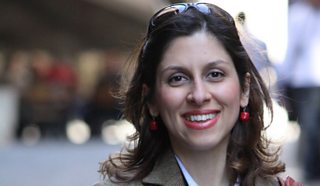From the Steppes to the Stage
From the nomads of the vast steppe, to the glamour and adulation of the stage. Kate Molleson unravels the story of Mongolia's remarkable rise to being an opera superpower.
From the nomads of the vast steppe - to the glamour and adulation of the stage. Kate Molleson unravels the story of Mongolia's remarkable rise to being an opera superpower. And, in this special double bill, producer Steven Rajam joins Rhianna Dhillon to discuss the making of the programmes.
Mongolia is becoming a global leader in opera singing - and completely breaking the mould. Young nomadic herders and horsemen are being plucked from the vast plains and taken to Ulaanbataar - where they're transformed into the next generation of top-flight tenors and baritones.
It's a fascinating synergy of young men with the perfect physique, often honed in a rugged, traditional outdoorsmen culture, and a superb Soviet-era music and arts education system that - just over half a century after its State Academic Theatre of Opera and Ballet first opened - is delivering the next generation of global singing superstars.
Radio 4 brings you a hypnotic audio portrait, taking you from the open plains, horse lullabies and throat singing of the endless Mongolian landscape to the cultural melee of Ulaanbataar - a place of stark contrasts where gleaming 21st century skyscrapers rise, yet where around half the population live in traditional gers (tents). A nation numbering just 3 million people, yet the size of Western Europe, and sandwiched between the gigantic superpowers of Russia and China - how much can Mongolia harness its cultural might to have a voice in global geopolitics?
In the first episode, journalist Kate Molleson documents the story of Ariunbaatar Ganbaatar - last year, the winner of one of the most prestigious prizes in global opera: the 大象传媒 Cardiff Singer Of The World Song Prize, whose previous winners include Bryn Terfel and Ailish Tynan. Ariunbaatar was born to a family of nomadic herders, who still live a traditional lifestyle in the immense Mongolian steppe. At his family's ger, hundreds of miles from the nearest settlement, Kate is treated to a performance of Mongolian longsong - the nation's traditional classical singing art - as well as joining Ariunbaatar on horseback to hear the songs he sang as a young boy, alone in the vast wilderness. Is Mongolia's unique traditional culture - perhaps even its landscape itself - the secret of its extraordinary vocal alchemy?
In the concluding episode, Kate explores the political value of Mongolia's musical prowess. In the Soviet era, the communist government used the people's love of traditional song to advance opera, and with it a certain idea of "civilisation"; in 2017, the current government see Mongolia's operatic might as a way of punching above its weight in global geopolitics. The buzzword on everyone's lips is "soft power" - a way for Mongolia to be part of a global conversation with nations - like its neighbours Russia and China - they could never compete with militarily or economically.
As Mongolia's foremost opera star prepares to take the stage in Ulaanbaatar, Kate explores the diversity of Mongolia's musical makeup in 2017 - from breakout indie acts and hip hop DJs to women throat singers causing ripples in the nation's venerable traditional classical singing art.
Producer: Steven Rajam
Presenter: Kate Molleson
A 大象传媒 Wales production for 大象传媒 Radio 4.
Featured in...
![]()
Seriously...—Seriously...
A rich selection of documentaries aimed at relentlessly curious minds.
Nazanin and the mystery of a decades old tank debt
Seriously... Archive
Even more seriously interesting documentaries from Radio 4.
Seriously... Reads
Read more about some of the amazing stories in Seriously...
Podcast
-
![]()
Seriously...
Seriously is home to the world鈥檚 best audio documentaries. Introduced by Vanessa Kisuule.




